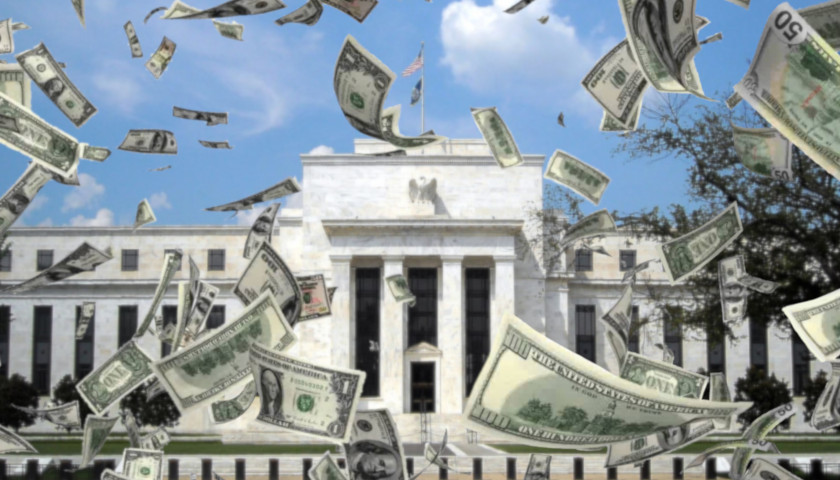by Harry Wilmerding
The Federal Reserve said in September that it would begin taking steps to combat growing inflation in the U.S. economy, according to notes from a Sept. 21 and Sept. 22 Open Market Committee meeting first obtained by The Wall Street Journal.
The Federal Reserve will be scaling back its $120 billion monthly purchases of U.S. Treasury and mortgage securities due to the growing surge in inflation and strong consumer spending leading to heightened demand, according to minutes from a September meeting released Wednesday by the WSJ. The reduction in spending, commonly referred to as tapering, will begin in mid-November, and experts believe it could end by June, according to the meeting notes.
The Fed will slow down its spending, cutting purchases by $15 billion a month that are split between mortgage securities and bonds, the WSJ reported.
 Bond purchases have been a cornerstone of the Fed’s stimulus policy plan to keep interest rates down in an effort to maintain economic growth during the COVID-19 pandemic, The Wall Street Journal reported.
Bond purchases have been a cornerstone of the Fed’s stimulus policy plan to keep interest rates down in an effort to maintain economic growth during the COVID-19 pandemic, The Wall Street Journal reported.
The Fed’s decision reflects the increasing desire to tackle growing inflation in the economy, which has lasted longer than experts expected, the WSJ reported.
Fed officials in favor of tapering believe raising rates and reducing asset purchases will bring inflation back to the central bank’s 2% target, according to the WSJ. Conversely, other Fed officials believe inflation will naturally come down to the 2% target, and the rapid spike in interest rates could jeopardize the central bank’s desire to keep inflation below 2%.
Federal Reserve Chairman Jerome Powell had said earlier in 2021 that the spike in prices is “transitory,” and would only last 6-9 months, the Daily Caller News Foundation reported. Other Fed officials pushed back on the idea, citing the growing inflation numbers.
“There’s also some evidence that they may not be so transitory, and that’s a risk I’m worried about,” Philadelphia Fed President Patrick Harker told CNBC.
The Consumer Price Index (CPI) increased .04% in September, bringing year-over-year inflation to 5.4%, the Bureau of Labor Statistics announced Wednesday. September’s figure is the highest year-over-year inflation jump since January 1991.
– – –
Harry Wilmerding is a reporter at Daily Caller News Foundation.
Photo “Federal Reserve” by AgnosticPreachersKid CC 3.0.






So now the fed is going to swing in the opposite direction of where they have been for years after their actions have destroyed the retirement accounts of many. Yeah, the higher interest rates along with out of control inflation are now going to eat quickly into those stagnant accounts. What a mess.